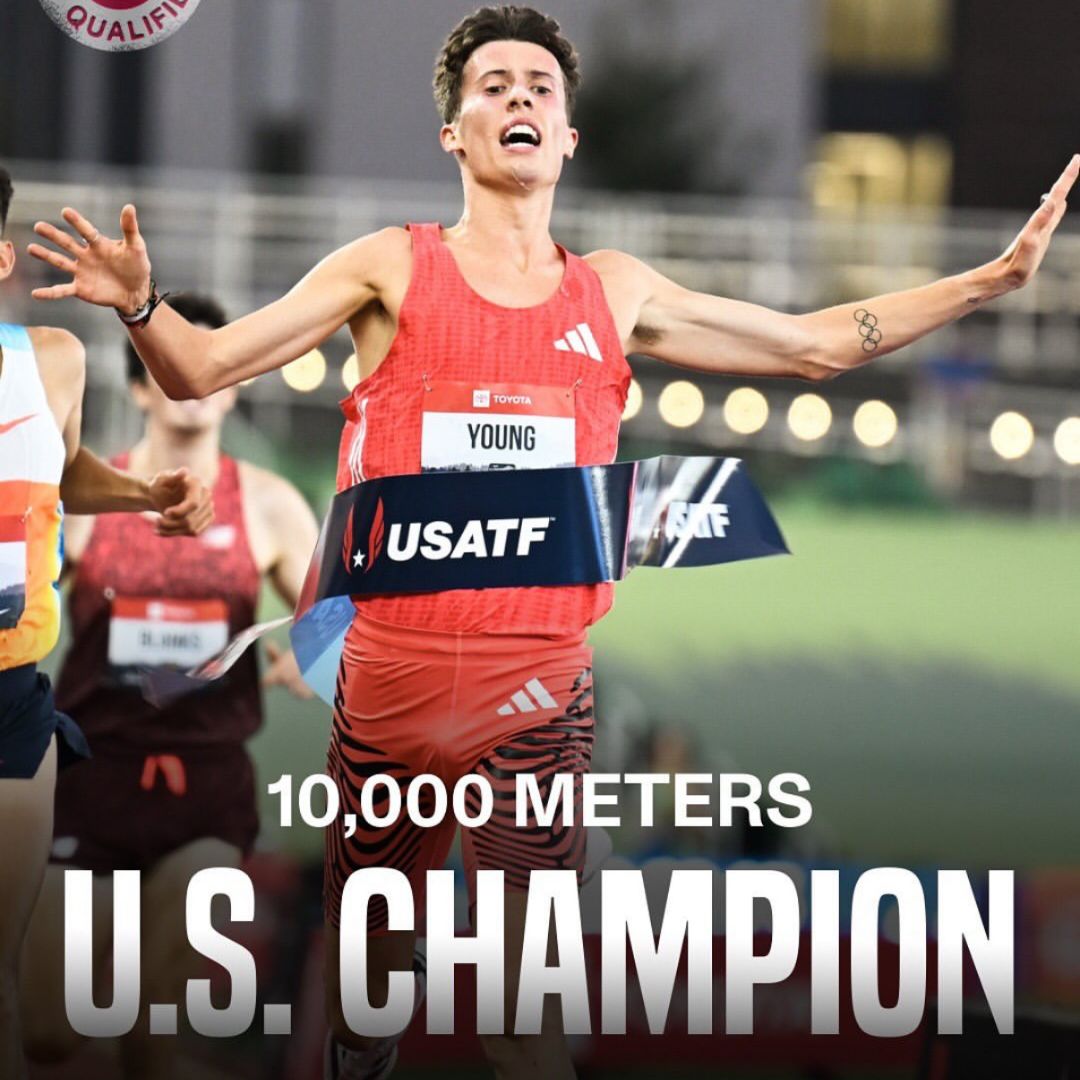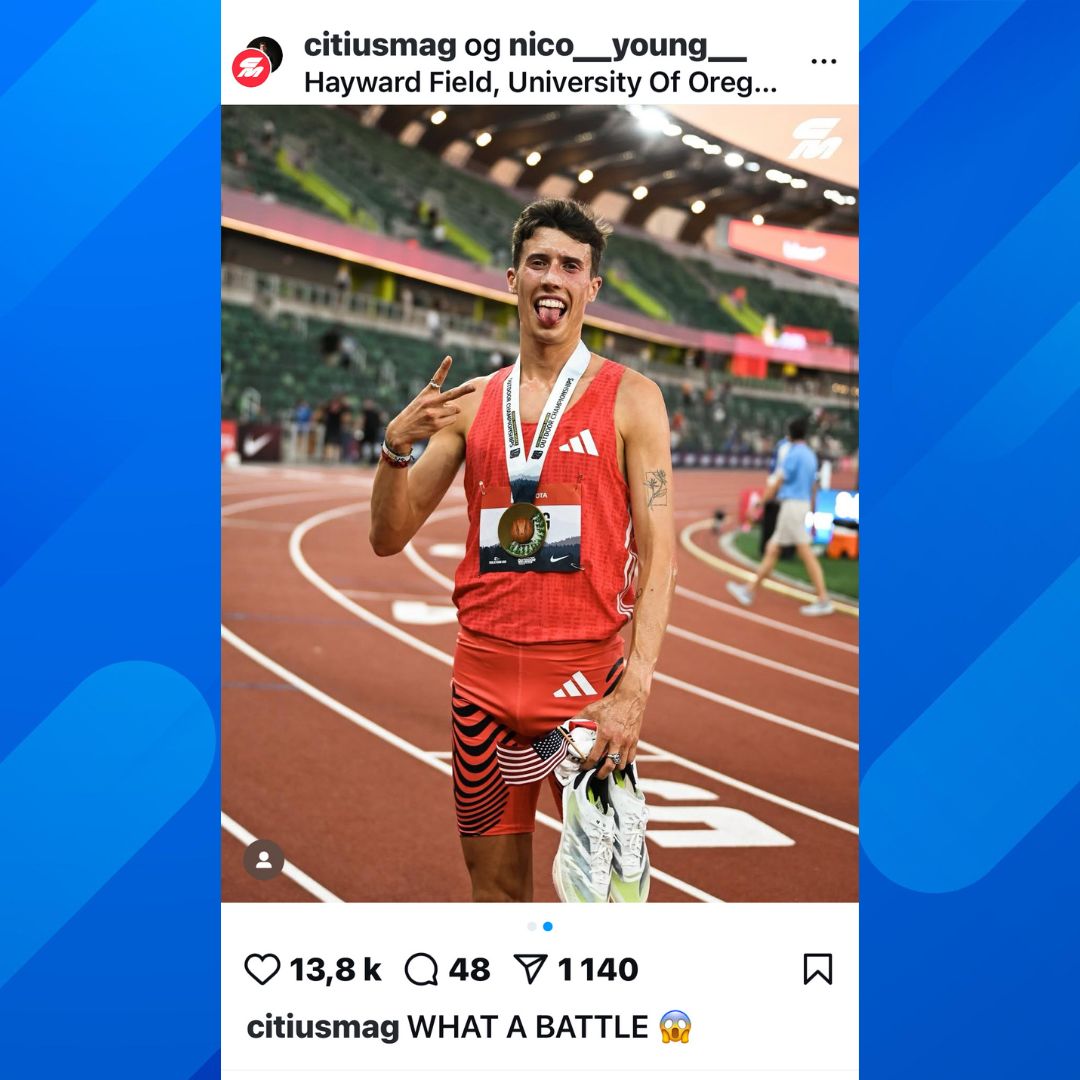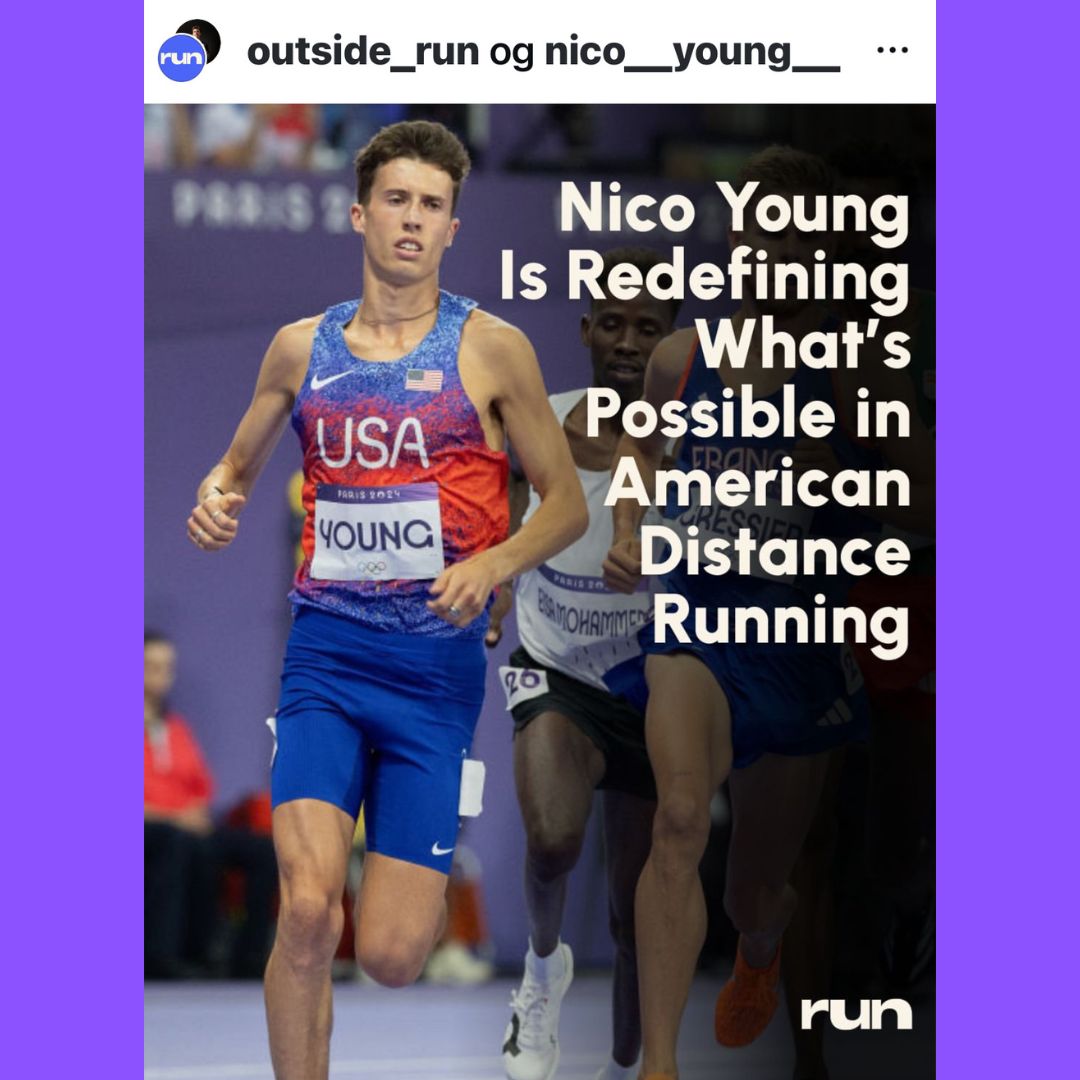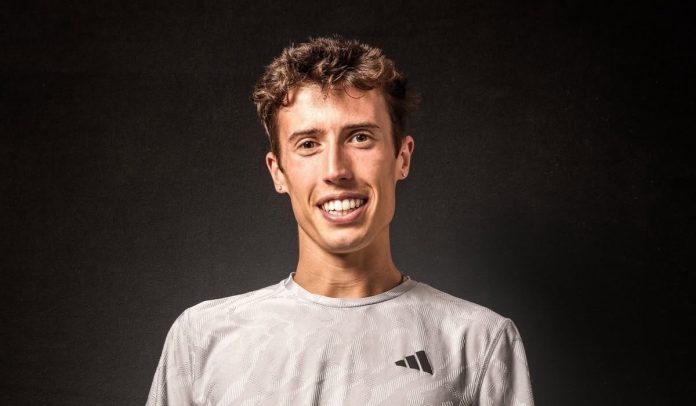Nico Young just sprinted into the record books — and into our hearts — with a groundbreaking victory that’s both athletic and historic.
At the USATF Outdoor Championships in Eugene, Oregon, the 23-year-old distance runner became the first publicly out gay man to win a U.S. national title in track and field, securing gold in the men’s 10,000-meter race.

Young’s dramatic late surge helped him overtake Olympic medalist Grant Fisher and rising star Graham Blanks, finishing with a time of 29:02.12 — just a quarter of a second ahead of Fisher.
It wasn’t just about the time on the clock but the milestone for representation in American sports.
“I want to be a representative and advocate for others like me,” Young said in his coming out post back in August 2022, and that promise just got a powerful follow-through on the track.

This victory came nearly a year after Young helped make history at the 2023 Paris Olympics, where his participation marked another LGBTQ+ milestone for American male athletes.
He’s also the current U.S. outdoor record holder for the 5,000 meters, a title he claimed in June at the Diamond League meet in Oslo, and he’s aiming for another breakthrough at the upcoming World Athletics Championships.
You may like: Ex-Rutgers Star Jake Eldridge Gets Real About Coming Out
Though the pace in Eugene was slower than some of his past personal bests — his P.B. stands at an impressive 26:52.72 — Young’s strategy and finishing kick were flawless, covering the final four laps in just under four minutes.

With reigning Olympic champ Joseph Cheptegei unlikely to compete in Tokyo, Young’s path to Olympic glory seems more realistic than ever.
And while other LGBTQ+ athletes like Kerron Clement, Nikki Hiltz, and Sha’Carri Richardson have made headlines in recent years, Young now becomes a symbol for gay men in men’s track competitions — not after the fact, but right in the moment of his crowning achievement.

Despite being somewhat reserved about his identity publicly, Young told Runner’s World that he draws strength from standing out.
“It means a lot to me,” he said. “I hoped to be a voice for people who are struggling.”
And now, with a medal around his neck and a growing legacy in both athletics and representation, that voice is impossible to ignore.
You may like: Rugby’s Keegan Hirst On Gay Sex, Shame, and Self-Love



